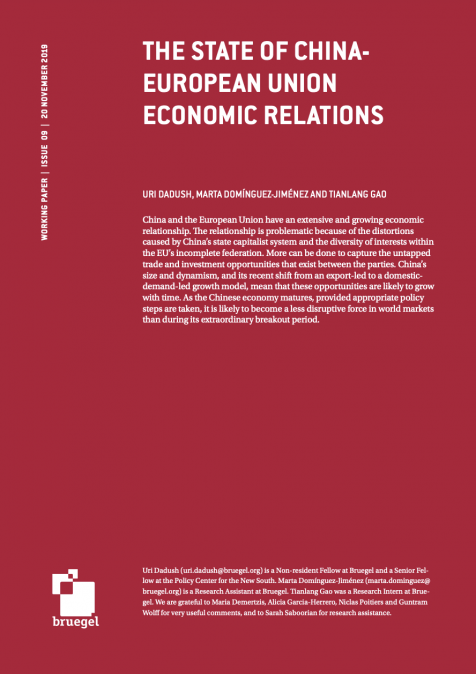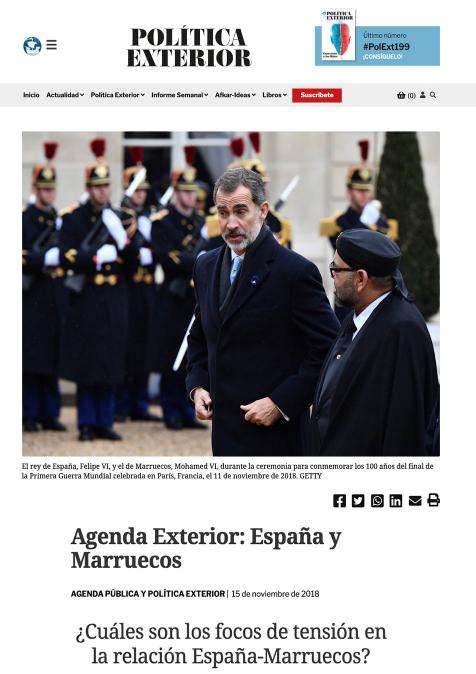Publications /
Opinion
« Revise, Reboot, Rebuild : Strategies for a time of Distrust »: that was this year’s theme for the Brussels Forum, a yearly high-level conference held from March 8th to 10th by the US think tank German Marshall Fund (GMF), partner of the OCP Policy Center who attended the event through its delegation. This meeting of some 400 policymakers, academics and private sector operators is reviewing the relationship between Europe and the United States. Brexit, the Trump administration, the migrant crisis and the rise of populism have been discussed, in the presence of Youssef Amrani, former minister of Foreign Affairs of the Kingdom of Morocco and Special Advisor to the King Mohammed VI, and two senior fellows of the OCP Policy Center, Abdelhak Bassou and Mohammed Loulichki.
« Our number 1 priority is to end war in Syria. The European Union is the biggest donor in the area, but we really have to work on a political solution ». This strong statement by Federica Mogherini, Italian citizen and Deputy President of the European Commission, was among the opening words of the Brussels Forum. She emphasized the need to « go beyond Washington » and keep on working on the strategic relation between Europe and the USA. « A relation that amounts to 30 % of the world trade », she reminded. In face of the Brexit and the new protectionist temptation of the Trump administration, she stated that « Europe is for free trade and will never be protectionist ».
The tensions between the North-Atlantic allies since the election of Donald Trump were at the heart of the debate, as well as the feeling of a growing distrust in Western democracies towards politics, but also the press and trade. Mateusz Morawiecki, Prime Minister of Poland, has talked candidly about the need « not to regulate and centralize more in Europe, but the need to deregulate, rather ». He mentioned in diplomatic ways the underlying tensions in the EU, with « some countries more equal than others » and quoted an article on how the Western European countries have « colonized » the Eastern European countries. « Our imagination about the future, our sense of dignity is different from Western Europe, but we try to find a common language, a common lowest denominator on immigration for instance ».
The migrant crisis, a hot topic
On the migrant crisis issue, a hot topic all over the EU, the Polish Prime Minister said that « solidarity is important, and Poland has played its part by welcoming Chechen refugees and 1.5 million people from Ukraine, some of them homeless”. He underlined that his country believes that “ there is a more efficient way to help people in Italy, Libya and Lebanon. With 1.1 billion people in Africa, what is our reply ? Is it 2 million, 12 or 22 million ? How many people from Africa can we accommodate in the EU ? ».
On a panel held in the evening, on « Where is home in a global world », the question of migration has been examined with some deeper insight. Cynthia Miller-Idriss (Professor at the School of Education of the American University, Washington) talked about the sense of loss experienced by youth attracted by far-right movements in Europe and the USA. Manolis Vournos, the mayor of Chios, main city of the Greek Island of Chios, shared is experience on managing a massive influx of migrants since 2015. He underlined the polarisation this situation has created in his local community, also facing the Greek economic crisis.
Youssef Amrani’s call for the EU to « change its tools »
Youssef Amrani, former Morrocan Minister of Foreign Affairs and Special Advisor to the King Mohammed VI, clearly stated that « there is no home today in the global world, where we are facing the same threats and challenges ». He insisted on the fact that globalization, with its positive side – « free movement of people and capital and the spread of liberal values » – also has a darker flip side with « the loss of jobs, the rise of populism and the identity crumble ». Hence, the need of « strong States doing their homework ».
When asked why he was not talking about migration, Youssef Amrani responded that « migration is an issue, but there are other threats we should address, such as the deconstruction of the jihadist narrative, to propose an alternative narrative ». He reminded that Morocco has a history of « exporting migrants, then being a place of transit, and now a place of destination. We see it as an opportunity. We have to fight against illegal immigration and reinforce the legal migration. The Kingdom has passed laws to give our African brothers a chance to stay ». A policy of regularisation was launched in 2014 to give a legal status to some 25 000 African migrants in Morocco, and a second wave launched in 2016. Youssef Amrani also called for European Union to change its instruments towards migration and integration issues, in order to « focus them differently », he said. « We told you ten years ago Frontex would not work. Today, we have to talk about Libya… And we need solidarity. »





